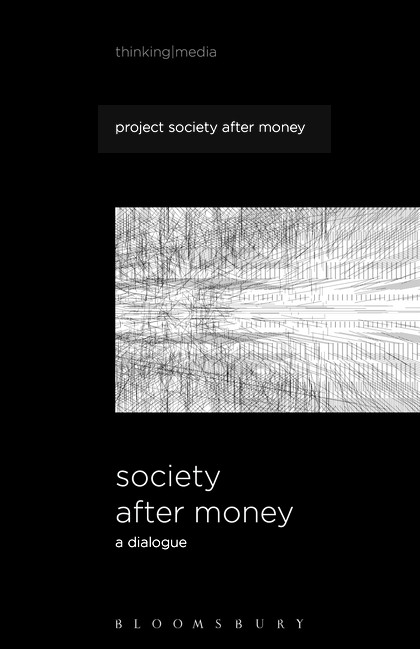Society After Money. A Dialogue
Project Society After Money is an interdisciplinary project between commons theory, evolutionary political economy, media studies and sociology, that enter into a dialogue with one another in order to look at their specific theories and criticisms of money. Conceived as the beginning of a necessary interdisciplinary dialogue, the possibilities of post-monetary forms of organization and production are taken into account and examined. On one hand there is a lot of talk about ‚digital revolution‘, ‚mediatized society‘, ’networks‘, ‚Industry 4.0‘. On the other hand the present is described in terms of crisis: ‚financial crisis‘, ‚economic crisis‘, ‚planetary boundaries‘. At once there is the description of a media-technological change along with massive social and ecological disruptions.
Society After Money is based on the premise that there might be a conflict between digital media/digital technology and the medium of money – and perhaps new digital possibilities that allow alternative forms of economy. It criticizes what is normally seen as self-evident and natural, namely that social coordination has to be done by the medium of money. We’re left with a highly innovative collection of contributions that initiates a broader social discourse on the role of money in the global society of the 21st century.
Table of contents
Introduction
Part 1: A Society After Money?
1 Historical Position, Characteristics and Perspectives of Current Approaches to Post-Monetary Economic Activity – Lars Heitmann
Part 2: Concept and Crisis of Money
2.1 The Elephant in the Room: The Money Commodity and its Mysteries – Ernst Lohoff
2.2 Monetary Mechanisms: Origins, Dynamics and Crisis – Tobias Kohl
2.3 Trialogue: Money as Medium or as General Commodity? – Ernst Lohoff, Hanno Pahl, and Jens Schröter
2.4 On the Possibility of a Society after Money: Evolutionary Political Economy, Economic Subjectivity and Planetary-Scale Computation – Ernest Aigner and Manuel Scholz-Wäckerle
Part 3: Money as an Alien
3 Post-Monetary Elements in Utopian Literature and Science Fiction – Annette Schlemm
Part 4: Mediation After Money
4.1 A Critical View on the Criticism of Money – Christian Siefkes
4.2 Categorical Foundations of a Post-Monetary Society – Stefan Meretz
4.3 The Post-Capitalist Feminism Cookie. The Main Course: A Commons-Creating Peer Production as a Possible Future – Friederike Habermann
4.4 Trialogue: Implicit and Explicit Views of Human Nature – Friederike Habermann, Stefan Meretz, and Christian Siefkes
Part 5: Mediality After Money
5.1 Are We Approaching a Moneyless Society? – Peter Fleissner
5.2 Money: For a Non-Money Economy – Stefan Heidenreich
5.3 Money and Digital Media – Jasmin Kathöfer and Jens Schröter
Afterword – Anitra Nelson
Conclusion by Anitra Nelson:
This output of the Society After Money project centered on the University of Bonn and funded by the Volkswagen Foundation has fruitfully drawn on scholars from a range of fields, such as heterodox economics, sociology, eco-feminism and commons, cultural, media, political and philosophical studies—to light a further fire in a very timely debate not only on the future of money but also of humanity.
